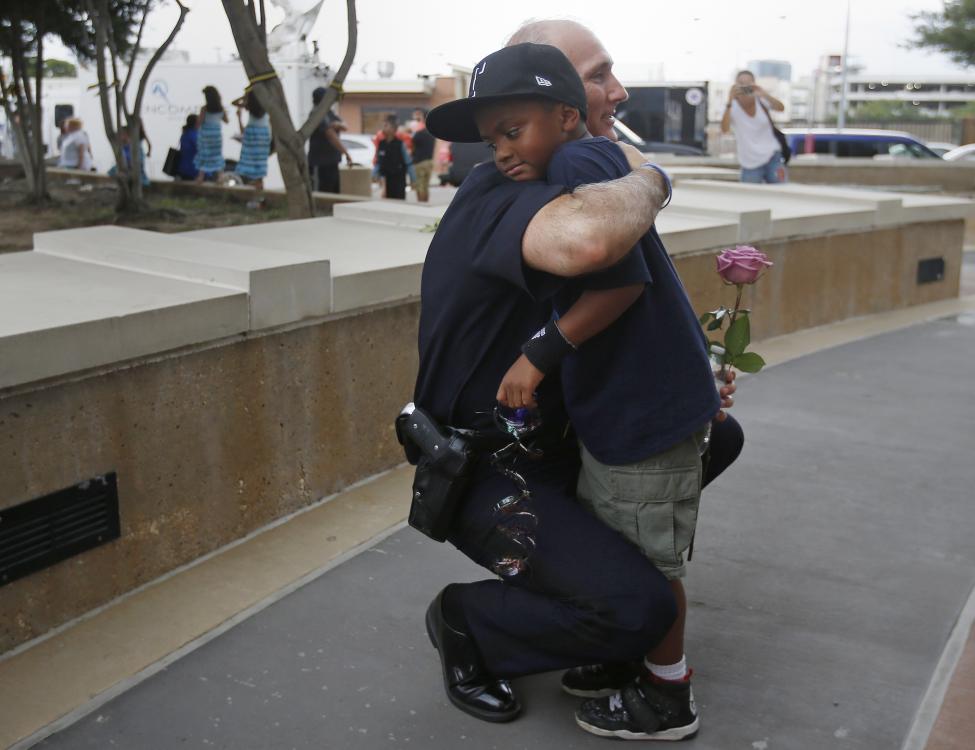We, black America, are a nation of nearly 40 million souls inside a nation of more than 320 million people. And I fear now that it is clearer than ever that you, white America, will always struggle to understand us.
Like you, we don’t all think the same, feel the same, love, learn, live or even die the same.
But there’s one thing most of us agree on: We don’t want cops to be executed at a peaceful protest. We also don’t want cops to kill us without fear that they will ever face a jury, much less go to jail, even as the world watches our death on a homemade video recording. This is a difficult point to make as a racial crisis flares around us.
We close a week of violence that witnessed the tragic deaths of two black men — Alton B. Sterling and Philando Castile — at the hands of the police with a terrible attack in Dallas against police officers, whose names we’re just beginning to learn. It feels as though it has been death leading to more death, nothing anyone would ever hope for.
A nonviolent protest was hijacked by violence and so, too, was the debate about the legitimate grievances that black Americans face. The acts of the gunman in Dallas must be condemned. However, he has nothing to do with the difficult truths we must address if we are to make real racial progress, and the reckoning includes being honest about how black grievance has been ignored, dismissed or discounted.
In the wake of these deaths and the protests surrounding them, you, white America, say that black folks kill each other every day without a mumbling word while we thunderously protest a few cops, usually but not always white, who shoot to death black people who you deem to be mostly “thugs.”
That such an accusation is nonsense is nearly beside the point. Black people protest, to one another, to a world that largely refuses to listen, that what goes on in black communities across this nation is horrid, as it would be in any neighborhood depleted of dollars and hope — emptied of good schools, and deprived of social and economic buffers against brutality. People usually murder where they nest; they aim their rage at easy targets.
It is not best understood as black-on-black crime; rather, it is neighbor-to-neighbor carnage. If their neighbors were white, they’d get no exemption from the crime that plagues human beings who happen to be black. If you want interracial killing, you have to have interracial communities.
We all can see the same videos. But you insist that the camera doesn’t tell the whole story. Of course you’re right, but you don’t really want to see or hear that story.
At birth, you are given a pair of binoculars that see black life from a distance, never with the texture of intimacy. Those binoculars are privilege; they are status, regardless of your class. In fact the greatest privilege that exists is for white folk to get stopped by a cop and not end up dead when the encounter is over.
Those binoculars are also stories, bad stories, biased stories, harmful stories, about how black people are lazy, or dumb, or slick, or immoral, people who can’t be helped by the best schools or even God himself. These beliefs don’t make it into contemporary books, or into most classrooms. But they are passed down, informally, from one white mind to the next.
So you demand the Supreme Court give you back what was taken from you: more space in college classrooms that you dominate; better access to jobs in fire departments and police forces that you control.
Terror was visited on Dallas Thursday night. Unspeakable terror. We are not strangers to terror. You make us afraid to walk the streets, for at any moment, a blue-clad officer with a gun could swoop down on us to snatch our lives from us and say that it was because we were selling cigarettes, or compact discs, or breathing too much for your comfort, or speaking too abrasively for your taste. Or running, or standing still, or talking back, or being silent, or doing as you say, or not doing as you say fast enough.
The New York Times
